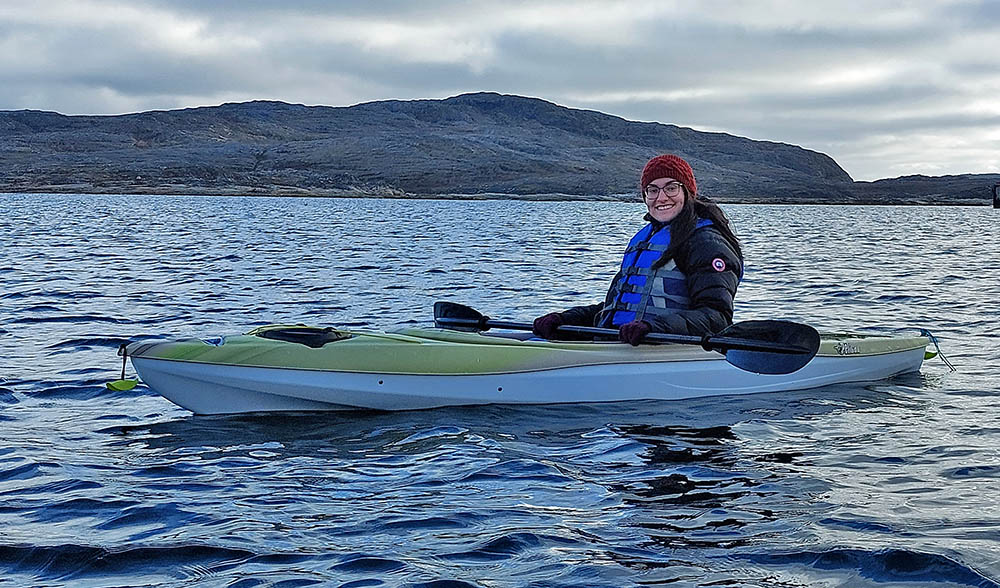Research Report: 2020
▼ Choose a report:

Powered by Research & Graduate Studies

Powered by Arts and Social Science

Powered by Fine Arts

Powered by Science and the Environment


Veronica Flowers
Veronica Flowers is hoping her research will help shape the way researchers conduct their work in the North.

Stephen Decker, Assistant Professor
The Inuk graduate student from Hopedale, Nunatsiavut is pursuing a master of arts in environmental policy (MAEP) at Grenfell Campus, Memorial University, under the supervision of Dr. Stephen Decker of the School of Science and the Environment.
Veronica's research is the second component of a larger collaborative research project entitled "Prerequisites for Responsible and Effective Wildlife Harvest Management and Decision Making in Canada's North", which was designed in partnership with representatives of the Nunatsiavut Government. This project is supported by a Social Science and Humanities Research Council (SSHRC) Insight Development Grant and with in-kind contributions from the Nunatsiavut Government and the Grenfell Campus of Memorial University.
The first phase of the project included a review of northern wildlife harvest management-related peer-reviewed journal articles to determine the extent to which authors were writing about aspects of responsible and respectful conduct when working in areas of Inuit Nunangat (homeland). This literature review is being carried out MAEP graduate student, Charlotte Montgomery, and will provide information that can be compared with the findings from Veronica's project.
Ms. Flowers' project, titled "Requirements for Effective and Responsible Research Conduct in Northern Labrador: identifying local perceptions on wildlife management in Nunatsiavut", will specifically focus on collecting primary data through interviews on effective research conduct in the five communities of Nunatsiavut: Nain, Hopedale, Makkovik, Postville, and Rigolet.
"Effective and responsible research conduct is a necessary part of the research process in Canada's north, especially in an Indigenous context," said Ms. Flowers. "My study focuses on learning about local perspectives on the prerequisites and conditions that must be met for effective research conduct in Nunatsiavut."
She said interviews will be based on three main questions: What are the requirements of good conduct for research involving northern wildlife harvest management: (1) before, (2) during, and (3) after research is carried out in Nunatsiavut?
She said there are two main goals for the project:
Ms. Flowers plans to conduct 50 interviews in Nunatsiavut with local people, roughly 10 in each community. In order to obtain a variety of opinions and reduce bias, there will be four target groups for interviews:
Her research – the basis of her master's thesis - will result in an internal Nunatsiavut Government report on the NGRAC process, as well as knowledge mobilization activities with presentations and information sharing within the communities of Nunatsiavut. She also has plans to publish her work and present at the ArcticNet – Annual Scientific Meeting.
Veronica's work is a great example of research collaboration between the university and the Nunatsiavut Government and also highlights the important role played by graduate students in leading research of importance to the places they call home.